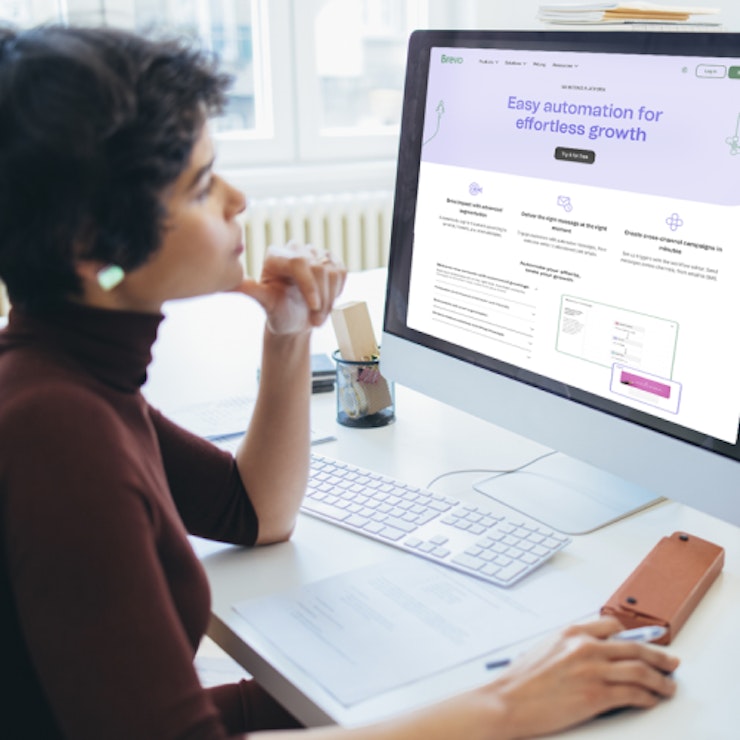
As a small business owner, you’ll likely encounter clients who don’t pay on time or, even worse, don’t pay at all. Nonpaying clients can hurt your cash flow and cause stress in your business. Fortunately, there are effective ways to deal with nonpaying customers and prevent this situation from happening again.
What to do if a customer doesn't pay
If a client is late paying their invoice, don’t immediately assume the worst-case scenario since clients fall behind on their payments for a variety of reasons. It’s generally best to start small and increase the pressure over time. Here are five ways to deal with a nonpaying client.
Follow up immediately
You should follow up with your client the first day their payment is late, even if it’s a new client. Start by sending a friendly email reminding them of the overdue invoice and asking when you can expect to receive payment.
If you haven’t received payment after a week or two, follow up again, and this time, send an updated invoice. That way, the client can’t blame their lack of payment on misplacing the original invoice.
Call them or schedule a meeting
Once the invoice is between 30 and 60 days past due, try to call or schedule a meeting with that client. If you can get them on the phone, try to find out why they haven’t paid the invoice. Are they having financial problems, or is there another reason they won’t pay?
You want and deserve to be paid for your work, but try to avoid getting angry. Fostering open communication with that client and getting to the root of the problem is your best chance of eventually receiving payment.
Send a debt collection letter
Once the invoice is 90 days overdue, send the client a debt collection letter. This letter should inform the client when the original payment was due and outline the steps you’ve taken thus far to collect on the debt.
Let the client know when they need to pay you and what payment methods you accept. You should also outline the actions you’ll take if you still haven’t received payment. For example, you may have to discontinue your relationship with that client or send them to collections.
[Read more: How to Accept Recurring Payments From Customers]
Requiring an upfront deposit can prevent the majority of nonpayments. You might also consider charging late fees or offering customers an early payment discount.
Hire a collection agency
When all else fails, a collection agency can collect your debt for you. Hiring a collection agency is often the last stop before litigation for businesses that need to settle an unpaid invoice. These agencies specialize in collecting payments over 90 days past due.
While it can be an effective method of receiving payment, there are risks involved. Some debt collectors may use tactics that you’re uncomfortable with, which could hurt your company’s reputation.
And if the agency does manage to collect the debt, you’ll have to give them a percentage of the invoice. If you decide to go this route, make sure to find a reputable collection agency to work with.
Consider letting it go
Once an invoice is over 90 days past due, it’s unlikely you’ll ever receive payment on it. If the missed payment is relatively small, you may want to let it go instead of spending additional time and resources on that client. Cut your losses and focus on finding new and better clients for your business.
Tips to prevent nonpayments
The best way to deal with nonpaying customers is to avoid them from the start. Here are the steps you can take to prevent future nonpayments.
Research your new prospects
Just like your customers likely evaluate your company before doing business with you, you should research your prospective clients before offering them your services.
Be clear with your payment policies
Requiring an upfront deposit can prevent the majority of nonpayments. You might also consider charging late fees or offering customers an early payment discount. Make sure to outline these policies in the contract you have your clients sign.
[Read more: How to Collect Payments: A Guide to Every Form of Payment]
Send invoices immediately and schedule reminders
Give your clients ample time to pay you by sending invoices and billing for work as soon as possible. If it’s close to or past the deadline and someone still hasn’t paid you, don’t hesitate to reach out to them. The client may have forgotten about the invoice deadline and simply needed the reminder.
Accept payments online
The more flexible you are with payment methods, the easier it will be for your customers to pay you on time. By accepting digital payments, you’re accommodating customers who prefer using apps like Venmo or PayPal.
Set up a payment plan
If your client is having financial difficulties, offer to set up a payment plan that works for both parties. Providing this option can strengthen your relationship with your client since it demonstrates you care about their well-being.
Lauren Kubiak and Sean Peek also contributed to this article.
CO— aims to bring you inspiration from leading respected experts. However, before making any business decision, you should consult a professional who can advise you based on your individual situation.
CO—is committed to helping you start, run and grow your small business. Learn more about the benefits of small business membership in the U.S. Chamber of Commerce, here.









